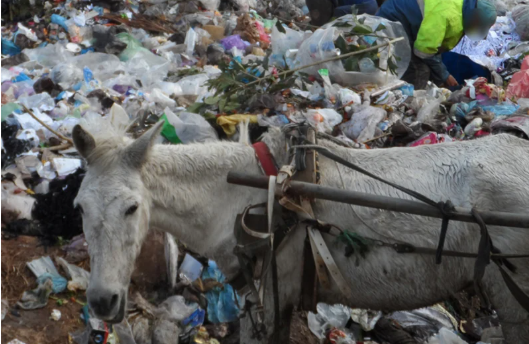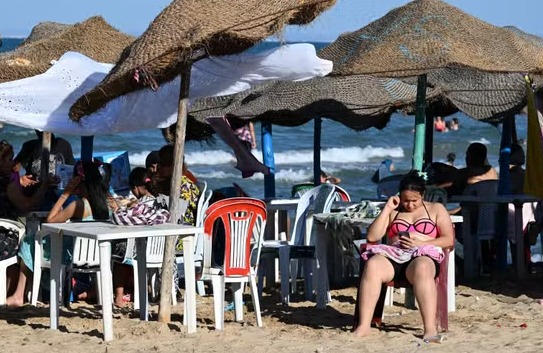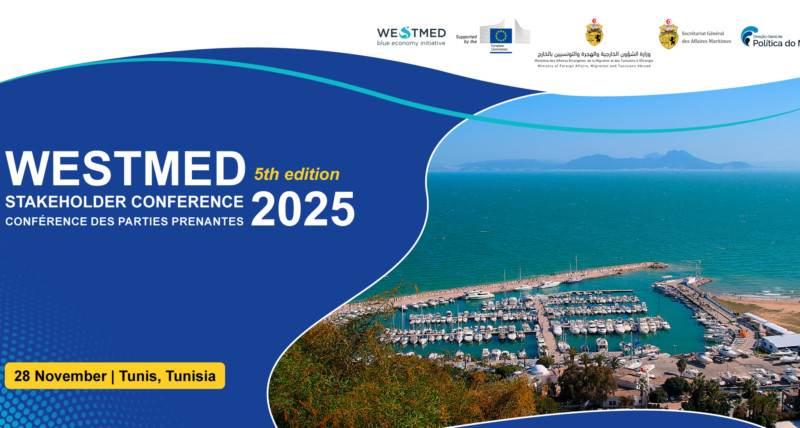Until December 1, 2024, representatives from 175 countries are gathered in Busan, South Korea, to finalize a global treaty aimed at eradicating plastic pollution. This initiative, launched during the fifth United Nations Environment Assembly in 2022, seeks to establish a legally binding framework that addresses the entire lifecycle of plastics—from production to disposal.
Plastic pollution is a global crisis that transcends national borders. With over 400 million tons of plastic produced annually worldwide and only 9% recycled according to the UN, oceans and terrestrial ecosystems have become open dumps. Despite its efforts, Morocco remains one of the countries grappling with this growing issue. By participating in the Busan discussions, the Kingdom acknowledges the urgency of integrating global solutions into its national policies.
Morocco, a committed actor in the fight against plastic pollution, actively participates in these negotiations, reflecting its determination to contribute to a global solution for this environmental crisis. The Moroccan delegation in Busan demonstrates the Kingdom’s commitment to collaborating with the international community to develop sustainable solutions to plastic pollution.
By joining this initiative, Morocco reaffirms its ambition to strengthen its environmental policies and align with international standards in plastic waste management.
The « Zéro Mika » Initiative: A Mixed Record
In 2016, Morocco launched the « Zéro Mika » operation by adopting Law No. 77-15, which banned the manufacturing, importation, exportation, sale, and use of plastic bags. This initiative aimed to reduce plastic pollution and promote sustainable alternatives.
However, eight years after its implementation, the results are mixed. Although ambitious and supported by a strong ecological vision, it faced numerous obstacles that limited its impact. A major barrier was the lack of awareness. A significant portion of the population has not fully embraced this transition due to insufficient information or deeply ingrained consumption habits.
As a result, plastic bags continue to be widely used, particularly in urban and rural markets. Reports indicate that clandestine production units persist, fueling a thriving underground market that is difficult to eliminate. Furthermore, proposed alternatives, such as reusable bags, have not always achieved the expected success due to their higher cost and limited availability.
Additionally, enforcement, while present, has not been rigorous enough to deter violators. Underground networks of plastic bag production have thrived in the shadows, sustaining a hard-to-eradicate parallel market.
Tackling Challenges: A Strengthened Strategy
To address these challenges, Morocco is moving toward a reinforced strategy, aiming to overcome past shortcomings. One proposed lever is intensified enforcement, with more frequent and targeted inspections to dismantle clandestine networks and impose dissuasive penalties. Increased public awareness is also indispensable: impactful communication campaigns could highlight the environmental dangers of plastic pollution and promote the benefits of alternatives.
Simultaneously, developing and promoting local reusable alternatives, such as fabric or biodegradable bags, with subsidies to reduce costs, should be central priorities. Strengthening partnerships with international organizations would also provide crucial technical and financial support to sustain these efforts and integrate innovative solutions tailored to the Moroccan context.
A Global Environmental Crisis That Challenges Morocco
While the intentions are commendable, effective implementation requires a holistic approach, combining legislation, awareness, viable alternatives, and international cooperation. The path toward a plastic-free Morocco is undoubtedly challenging, but with strong political will and collective mobilization, this ambition can become a reality.
Despite its limitations, the « Zéro Mika » initiative could serve as a foundation for other environmental policies. Adjustments are necessary, particularly in enforcement and alternative promotion, but this effort has laid the groundwork for more responsible waste management in Morocco. The next step could be the integration of a circular policy focused on recycling, where plastic waste becomes an economic resource.
Beyond public policies, the success of such a transformation depends on the mobilization of all stakeholders: citizens, businesses, and institutions. Consumers, through their daily choices, play a crucial role in reducing plastic demand.
Source: hespress




